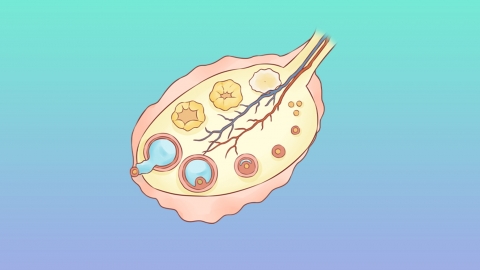What causes a sudden drop in progesterone levels by half?
Generally, a sudden drop in progesterone levels by half may be caused by factors such as unstable embryo implantation, hormonal fluctuations, luteal phase deficiency, endometriosis, or hyperthyroidism. If accompanied by abnormal bleeding, abdominal pain, or other symptoms, it is recommended to seek timely medical consultation and treatment at a reputable hospital. Detailed explanations are as follows:
1. Unstable Embryo Implantation
In early pregnancy, the embryo's implantation is not yet stable, and fluctuations in hormone secretion by trophoblast cells can lead to a sudden drop in progesterone levels. At this time, strenuous activities should be avoided, adequate rest ensured, and the diet should include more estrogen-rich foods such as legumes and nuts to support stable embryo development.
2. Hormonal Fluctuations
In non-pregnant women, progesterone levels fluctuate periodically throughout the menstrual cycle according to ovarian function. During the transition from the luteal phase to the menstrual phase, progesterone levels may suddenly drop by half. This physiological fluctuation does not require special treatment; simply monitoring whether the menstrual cycle remains regular is sufficient.

3. Luteal Phase Deficiency
Poor development or functional decline of the ovarian corpus luteum leads to insufficient progesterone secretion, preventing the maintenance of normal levels, which can result in a sudden drop in progesterone. Under a doctor's guidance, progesterone supplements such as progesterone soft capsules, dydrogesterone tablets, or medroxyprogesterone acetate tablets can be used to improve luteal function.
4. Endometriosis
Displaced endometrial tissue affects normal ovarian function and interferes with corpus luteum formation and progesterone secretion, leading to decreased progesterone levels. Under a doctor's guidance, medications such as ethinylestradiol cyproterone tablets, drospirenone ethinylestradiol tablets, or megestrol acetate dispersible tablets can be used to regulate hormone levels and alleviate the condition.
5. Hyperthyroidism
Hyperthyroidism affects the hypothalamic-pituitary-ovarian axis function, indirectly inhibiting progesterone synthesis, which can cause a sudden drop in progesterone levels. The underlying condition should be treated under a doctor's guidance, using medications such as methimazole tablets, propylthiouracil tablets, or antithyroid herbal tablets. Once thyroid function recovers, progesterone levels may gradually return to normal.
In daily life, maintaining a regular routine and avoiding late-night sleep, reducing mental stress and maintaining emotional stability, eating a balanced diet without excessive dieting or overeating, and regular progesterone level monitoring for women who are trying to conceive or are pregnant are recommended, with timely intervention if abnormalities are detected.






